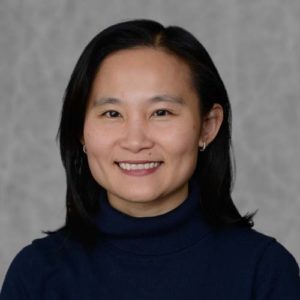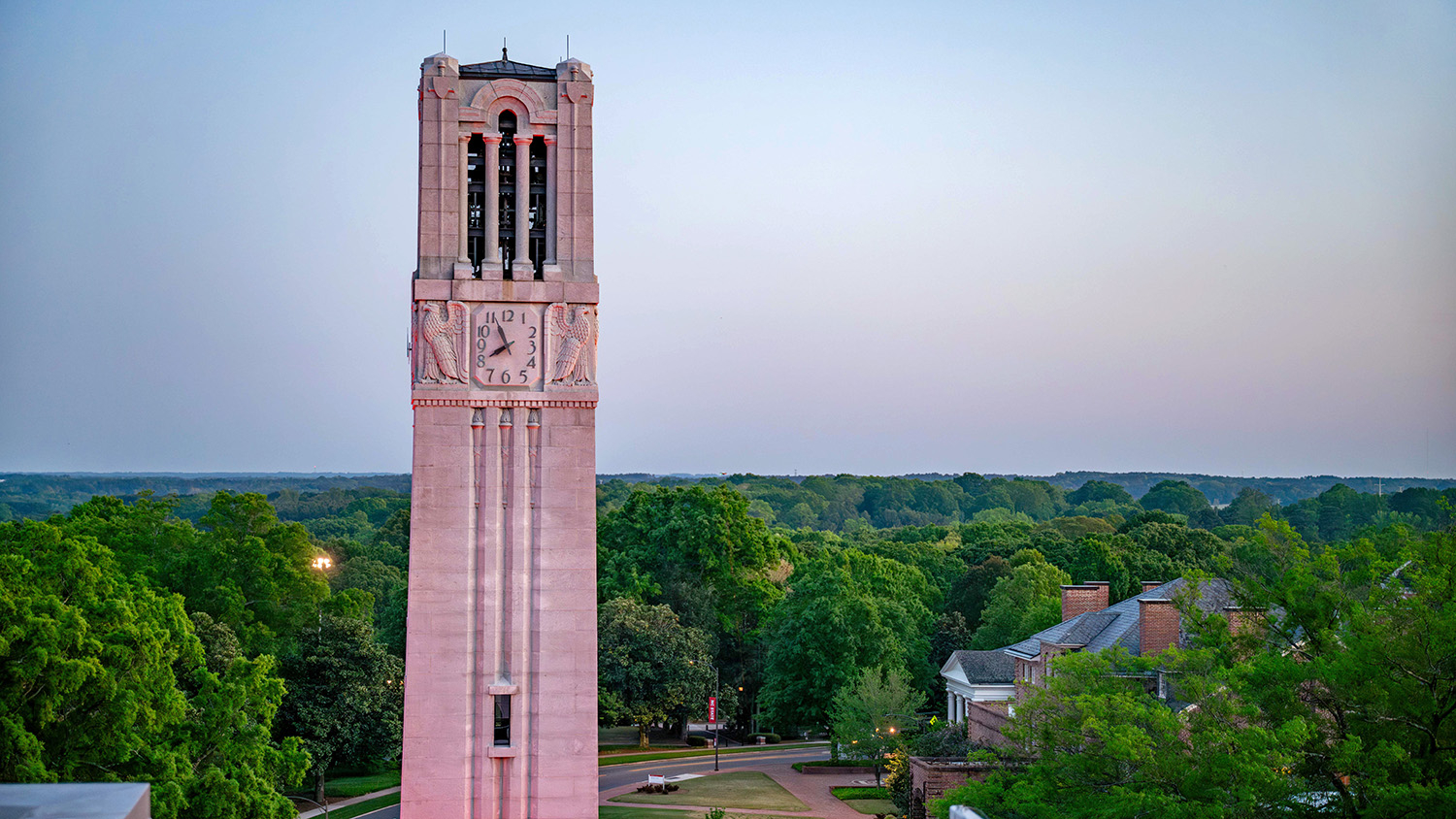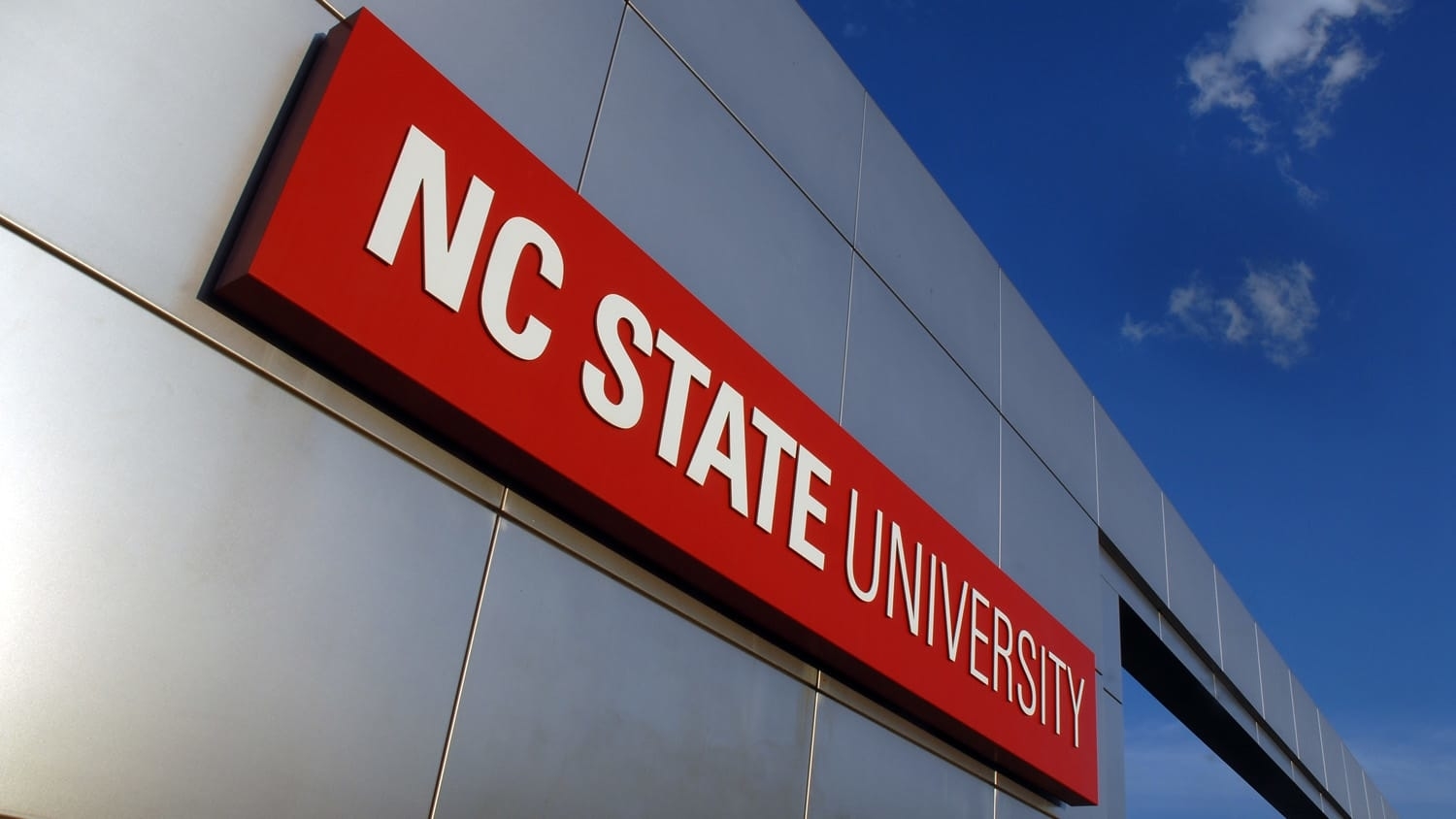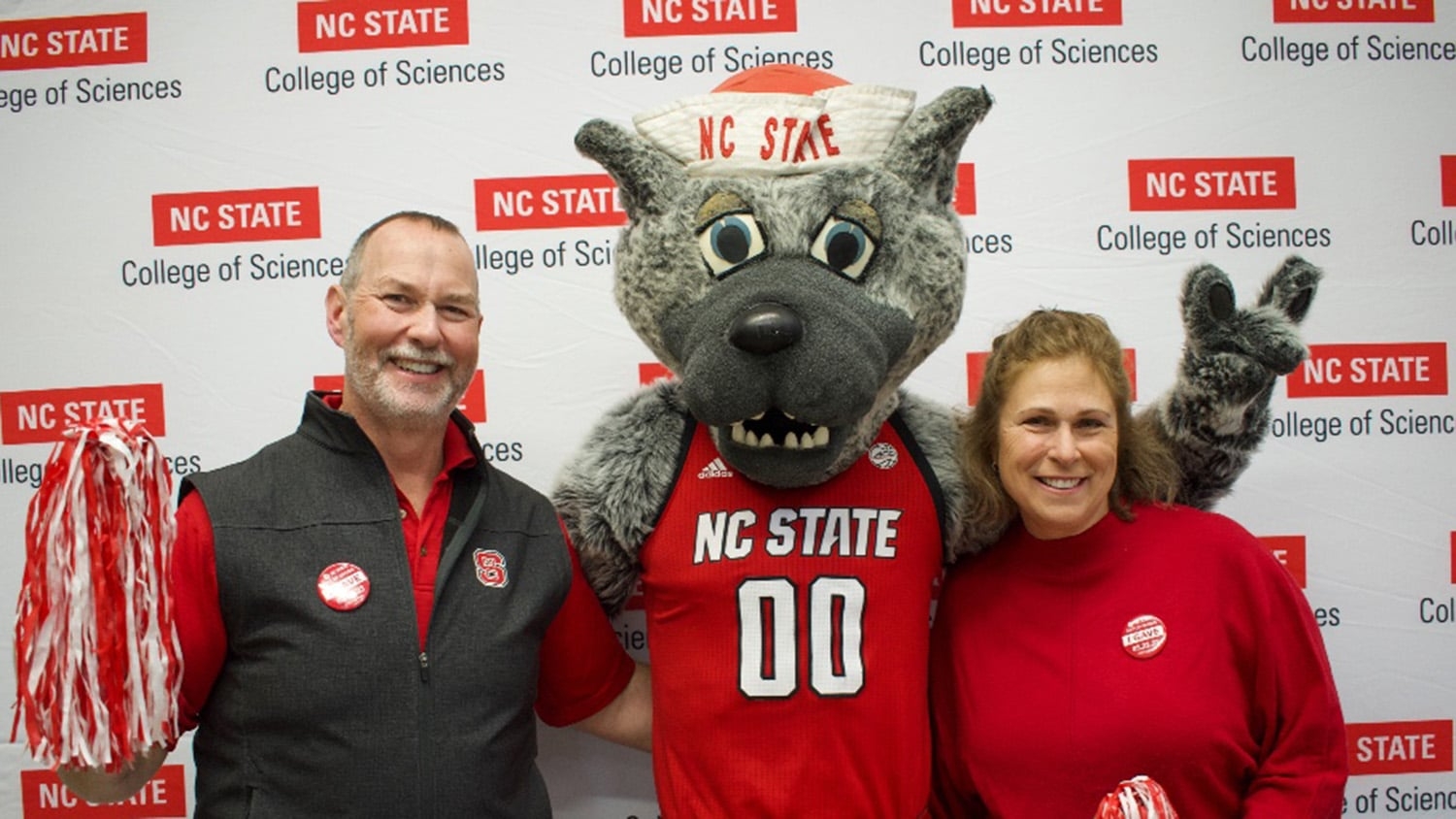Teaching Faculty Spotlight: Alice Lee Gives Micro her Max
 By Kathleen Wilson
By Kathleen Wilson
The following is (loosely) based on true events:
Scene: 10 a.m. at the Centers for Disease Control and Prevention (CDC) in Atlanta. A group of undergraduate biological sciences students, guarded by their wise and courageous mentor, Teaching Assistant Professor Alice Lee, are led by a stone-lipped white-coat down a cold, sterile corridor. Behind one window, the students observe several people in neon yellow hazmat suits, when a glimpse of a scabby, grey foot grabs their wide eyes from in between the bustling yellow. It twitches violently as an inhuman screech rings out, just before the hazmats yank a curtain, obstructing the onlookers’ view to the activities behind it. “Please, this way,” the guide demands.
In the next window, the students observe a tall, narrow tank, filled with light-pink fluid. Inside it, a sinewy body, so thin and pale it almost escapes notice floats, suspended in its liquid prison. But, what on Earth is it? The visitors lean in, all squinting, hoping to identify the figure, when another hazmat soldier yanks yet another curtain, shaking his head in disapproval.
None of that is actually true, but Lee and her MB 360 students did get to visit the CDC last spring! How, you ask? From taking home first place in the Small World Initiative (SWI) and the CDC’s, “Do Something About Antibiotics Challenge” for the ninth annual Get Smart About Antibiotics week. “We didn’t see any zombies or aliens at the CDC, but our group might have been easily mistaken for zombies as we wandered around in awe at the CDC campus,” Lee said.
The MB 630 (Inquiry in Microbiology: Crowdsourcing Antibiotics) students’ ticket to this incredible opportunity was obtained through their excellent contest entry. “[They] were very excited to participate in the competition,” Lee said. “In one class session, the 10 of them brainstormed all the activities they would do for the competition — a mannequin video of them working in the lab, painting the free expression tunnel with information about the antibiotic crisis, to several community outreach events on campus and at the NC Museum of Natural Sciences to educate the public about proper antibiotic stewardship. It was fun because we did all these activities together and the students’ excitement was contagious.” MB 360 is a classroom undergraduate research experience in which students contribute to the search for new antibiotics from soil microbes. It’s also part of a larger education project, the Small World Initiative, to improve undergraduate education in the sciences. “In MB 360,” Lee explained, “we read a lot of research papers to ground our understanding of the problem and to guide the research process.”
In addition to the grand prize, the David J. Sencer CDC Museum tour led by public health scientist Guillermo Sanchez, the class also received a private mentoring session with Laura Hicks, a medical epidemiologist and director of the CDC’s Office of Antibiotic Stewardship. The class also lucked out with a tour of the Edward R. Roybal Infectious Disease Laboratories, thanks to Lee’s colleague and fellow assistant teaching professor, Melissa Ramirez. Ramirez, a previous employee at the CDC working on tuberculosis, was able to tack this added experience onto the trip thanks to her contacts there.
“I was proud to see my students ask good questions and it was a wonderful opportunity to see scientists working in Biosafety Level 3 labs,” Lee recalls. “The best part of any trip that I take with my students is the opportunity I get to learn about my students as individuals, with all their humor, anxiety, and hopes for the future. It’s hard to do this when you are in a classroom or a lab class. On a class trip, we all get to relax, let our guard down a bit, and be ourselves without having to present our best “professional” selves. We get to share stories in the car ride, listen to podcasts together, fight over where we are going to eat, and groan about traffic… There’s no bonding activity like driving your minivan with a bunch of students to Atlanta. I highly recommend it!”
Lee’s passion and care for her students began when she was just an undergraduate, volunteering as a tutor for the Literacy Volunteers of the New River Valley in Virginia. “I taught basic literacy to adult learners. According to the National Center for Education Statistics, 14 percent of the U.S. population is considered not literate in English. These are Americans who were born here, went to school here, and lived here for generations. Yet, they cannot function independently because they lack the basic skills to fill out a job application, do not understand how to read their prescription labels, and cannot read books to their children. This keeps them trapped in poverty and low-skilled jobs. For the most part, my grandparents raised me, and my grandmothers were illiterate. I watched them sign their paychecks at the factory with a big “X” and even observed how illiteracy impacted their world view. This window into the world of literacy has made me incredibly passionate about education and the desire to teach, because I could see the power of education to transform lives.”
 “Now, I get to teach the subject I am most passionate about,” Lee adds, noting her love of microbiology. “What I really love is science, and microbiology is the scientific discipline that fascinates me the most. Science lets me do everything I enjoyed as a child — writing, reading to learn and reading for pleasure. It feeds my curiosity, it allows me to do experimentation, and there are so many unanswered questions and new ones to ask everyday. Microbes are wonderful organisms to do all of this in. Life on earth began with microscopic organisms over 3.8 billion years ago. They have evolved to shape our atmosphere, the geology, and energy cycles of our world. Yet for most of human history, we had no idea that microbes even existed. We have a lot of learning and exploring to do in microbiology.”
“Now, I get to teach the subject I am most passionate about,” Lee adds, noting her love of microbiology. “What I really love is science, and microbiology is the scientific discipline that fascinates me the most. Science lets me do everything I enjoyed as a child — writing, reading to learn and reading for pleasure. It feeds my curiosity, it allows me to do experimentation, and there are so many unanswered questions and new ones to ask everyday. Microbes are wonderful organisms to do all of this in. Life on earth began with microscopic organisms over 3.8 billion years ago. They have evolved to shape our atmosphere, the geology, and energy cycles of our world. Yet for most of human history, we had no idea that microbes even existed. We have a lot of learning and exploring to do in microbiology.”
And as evidenced by her work here in the department, Lee is passionate about instilling that desire for learning and exploration in her students. In MB 351, NC State’s introductory microbiology lecture, a requirement for many life sciences majors, Lee notes how the course is usually these students’ first brush with microbiology, and for some, their last. “I get to introduce them to this fascinating world. I never get tired of teaching it; there’s always some new research finding to discuss. Plus, I get to show students how microbes impact their chosen field — whether it is biology or physics.”
In addition to molding minds with microbiology here in Raleigh, Lee recently had the opportunity to teach an introductory course last Fall semester at Adam Mickiewicz University in Poznan, Poland, through NC State’s Study Abroad program. Lee spent a week working with new microbiology colleagues at the university and meeting NC State students enrolled in the program. “Once again, there’s nothing like a trip with your students to get to know them better and to see things from their perspective. We all struggled together as we learned to ride the tram, buy food, master greetings in Polish, and navigate the city.”
While her students and colleagues are well aware of Lee’s commitment to her teaching, her strengths and efforts are gaining attention all over campus. Just recently, the College of Sciences took note of Lee and her endeavors, honoring her with the Leroy and Elva Martin Award in recognition of her outstanding contributions to the college’s teaching mission.
So what’s next for Lee? Currently, she is collaborating with fellow Teaching Assistant Professor Mike Taveirne, Research Tech Sandy Gove, and graduate students Jennifer Greenstein and Lindsey Stevenson on redesigning the department’s undergraduate introductory microbiology labs. Along with colleagues in the Department of Food Science, as well as the North Carolina-based Mt. Olive Pickle Company, the team is working to incorporate real-world problems and research questions into the labs. “I’d like to eventually develop a new interdisciplinary perspectives course on the impact of microbes on history and literature,” she said. “I’m excited to keep these projects going or to start new ones, and am grateful for the opportunity to follow my own passions in teaching microbiology at NC State.”
Now, back to those zombies… “The CDC assures us that if there was a zombie apocalypse they would investigate it like any other disease outbreak,” Lee said. “See, if you train as a microbiologist, you’ll be prepared for anything!”


